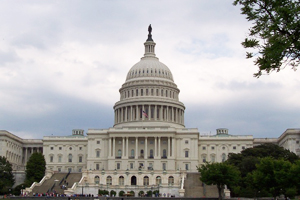
The panel’s testimony supported the previous recommendations from the report on nanotechnology by the President's Council of Advisors on Science and Technology (PCAST), which encourages Federal support for the commercialization of nanotechnology-enabled products, while further calling for the establishment of rational, science- and risk-based regulatory approaches that would be based on a material’s properties and plausible risks, rather than on the basis of size alone. Emerging nanomanufacturing and nanotechnologies hold the promise of significant scientific, economic, and societal impacts resulting from the potential impact to fields such as materials science, electronics, medicine, communications, agriculture, and energy. Rapid scientific and technological advances in these fields are resulting in a variety of new products and processes with unique and transformational properties, yet full realization of the economic and public benefits of these applications will require open consideration of policy questions from the full range of stakeholders, including government, industry, non-governmental organizations, academia, and the public.
Prior to this hearing, the White House had issued a Nanotechnology Policy Memo to all federal agencies in June 2011, effectively calling out the need for a balance between government oversight and regulation, and the importance of a growing nanotechnology industry. In order to achieve this balance, the recently formed Emerging Technologies Interagency Policy Coordination Committee (ETIPC) has developed a set of principles specific to the regulation and oversight of applications of nanotechnology, to guide the development and implementation of policies at the agency level.
A targeted objective of these principles and policies is the achievement of consistent approaches assessing various emerging technologies, and to further ensure the protection of public health and the environment while avoiding unjustifiably inhibiting innovation, stigmatizing new technologies, or creating trade barriers. Subsequently, the realization of nanotechnology’s full potential requires continued research and flexible, science-based approaches to regulation that protect public health and the environment while promoting economic growth, innovation, competitiveness, exports, and job creation. The ETIPC consists of assistant secretary-level representatives from about 20 Federal agencies, and supports the commitment of the White House to scientific integrity, promoting innovation andopen government, ensuring that the benefits of regulation justify the costs, and facilitating international trade.
